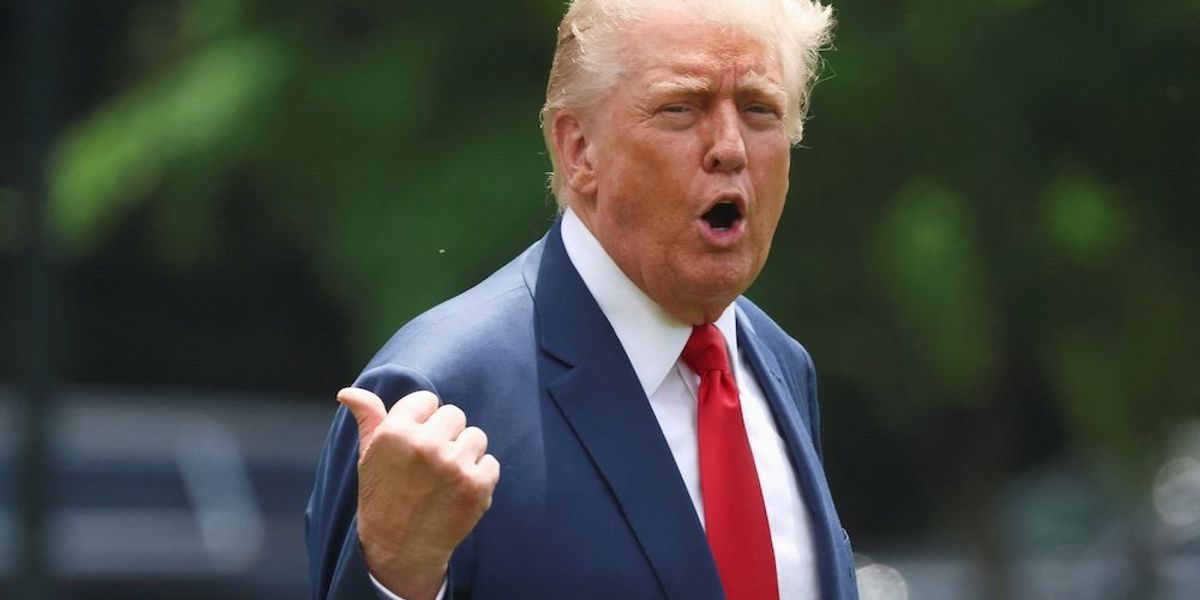WASHINGTON, D.C. – In a dramatic turn of events, President Donald Trump found himself embroiled in a media spectacle as his efforts to broker peace in the Middle East backfired, leading to public embarrassment.
Immediate Impact
Yesterday, President Trump used an expletive on live television, reflecting his frustration with the escalating tensions between Israel and Iran. The Washington press corps interpreted this outburst as a paternal rebuke, likening Trump to an exasperated father chastising unruly children.
However, far from projecting dominance, Trump appeared weakened and out of control. His announcement of a ceasefire between the two nations late Monday night was overshadowed by renewed hostilities, undermining his image as a peacemaker poised to present himself as a hero at the NATO summit.
Key Details Emerge
Despite Trump’s claims of having “completely and totally destroyed” Iran’s nuclear program, reports indicate that the reality is far from his assertions. According to an internal Pentagon assessment reported by CNN and other major outlets, Iran’s nuclear capabilities have only been temporarily set back.
Key Statistic: Iran’s nuclear program has been delayed by a few months, not obliterated.
Israeli Prime Minister Benjamin Netanyahu had reportedly been planning an attack on Iran for over a year, even as Trump attempted negotiations over Iran’s nuclear ambitions. Trump’s fascination with the televised bombardment led him to join the conflict, further complicating the situation.
Expert Analysis
William Adler, a political science professor at Northeastern Illinois University, noted that Trump’s public humiliation is unprecedented in modern U.S. history. “I can’t think of another time when an American president has been so publicly led by the nose,” Adler stated.
Adler drew parallels to past presidents who faced similar challenges, such as James Madison during the War of 1812 and William McKinley during the Spanish-American War, suggesting that Trump may have been pressured into action by external forces.
By the Numbers
- Billions Spent: The cost of military actions against Iran.
- Months Delayed: Iran’s nuclear program setback.
- Public Opinion: Polls show the use of force against Iran was unpopular.
Background Context
Netanyahu’s longstanding desire to engage Iran militarily aligns with Trump’s ambitions for a decisive American intervention in the Middle East. However, the complexities of international politics and the resilience of Iran’s nuclear infrastructure have thwarted these plans.
Trump’s attempts to negotiate a non-proliferation deal with Iran were undermined by his own actions, as well as by Netanyahu’s strategic maneuvers. The Israeli leader’s ability to capitalize on Trump’s desire for televised glory has further complicated the situation.
Regional Implications
The conflict has left Iran internally united and potentially more determined to advance its nuclear program. Meanwhile, Netanyahu’s tactics may encourage further military engagements, raising the specter of a broader conflict.
Trump’s announcement of renewed talks with Iran next week suggests a possible shift towards diplomacy, but the underlying tensions remain unresolved.
What Comes Next
As the situation continues to evolve, the U.S. administration faces the challenge of managing its international relationships while addressing domestic concerns about military intervention.
Experts warn that the current calm may be temporary, with potential for further escalation if diplomatic efforts fail. The world watches closely as Trump navigates this complex geopolitical landscape, seeking to restore his image and achieve a lasting resolution.
